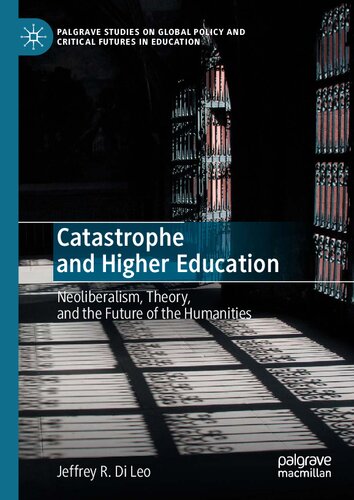

Most ebook files are in PDF format, so you can easily read them using various software such as Foxit Reader or directly on the Google Chrome browser.
Some ebook files are released by publishers in other formats such as .awz, .mobi, .epub, .fb2, etc. You may need to install specific software to read these formats on mobile/PC, such as Calibre.
Please read the tutorial at this link: https://ebookbell.com/faq
We offer FREE conversion to the popular formats you request; however, this may take some time. Therefore, right after payment, please email us, and we will try to provide the service as quickly as possible.
For some exceptional file formats or broken links (if any), please refrain from opening any disputes. Instead, email us first, and we will try to assist within a maximum of 6 hours.
EbookBell Team

4.3
28 reviewsThis book asks what it means to live in a higher educational world continuously tempered by catastrophe. Many of the resources for response and resistance to catastrophe have long been identified by thinkers ranging from Ralph Waldo Emerson and William James to H. G. Wells and Emanuel Haldeman-Julius. Di Leo posits that hope and resistance are possible if we are willing to resist a form of pessimism that already appears to be drawing us into its arms. Catastrophe and Higher Education argues that the future of the humanities is tied to the fate of theory as a form of resistance to neoliberalism in higher education. It also offers that the fate of the academy may very well be in the hands of humanities scholars who are tasked with either rejecting theory and philosophy in times of catastrophe―or embracing it.